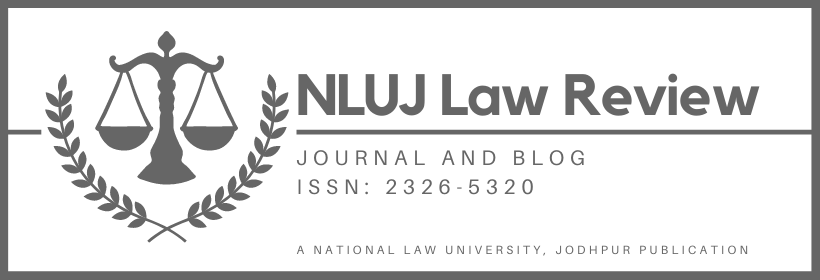The judgment of the Supreme Court of the United States of America (“USA”) in Animal Science Products, Inc v. Hebei Welcome Pharmaceutical Co. Ltd (“Animal Science Case”) has laid down an exhaustive jurisprudence on cross-border competitive interactions. This case takes into consideration the situations wherein the companies of the USA and China are indulged in the trade of Vitamin C. A group of Chinese Vitamin-C manufacturers formed a cartel in China and applied for leniency in China. Subsequently, these two companies were accused in the USA for conspiring to fix the price and quantity of their merchandise which they exported to the USA. On considering the amicus brief filed by the Chinese Ministry of the conduct of their companies in the USA was necessary and was mandated by the Chinese trade laws. Moreover, the companies formed a cartel in China and not the USA. The US Supreme Court (“SCOTUS”) did not absolve the Chinese of any liability rather they vacated the judgment of the Court of Appeals and remanded the case for renewed consideration. However, an important question of law came brimming amidst the entire chaos, that is, whether the plaintiffs from the USA could compel the Chinese defendants to produce the leniency documents which the latter had already submitted before the Chinese Antitrust Department, in the scenario wherein the Chinese companies are not liable for any cartelization against the United States.
Conundrum with respect to the Production of Leniency Documents
There has been a conundrum with respect to the production of leniency documents of one country before the other country especially where there is no conduct of alleged cartelization. The Chinese companies in the present case are still held liable for cartelization in the United States. However, it is pertinent to explore consequences wherein despite being absolved of liability, the Chinese companies would be compelled to produce their leniency documents before the United States Antitrust Department. This requires revisiting the following judgments.
It started with the infamous Methionine class proceedings wherein the Special Master did not mandate the production of the leniency documents of one jurisdiction before the other in absentia of any cartelization in the latter. The Court realized that demanding an exchange of confidential documents was not only likely to cause considerable harm to the foreign leniency programs and competition enforcement but was also likely to have a deleterious impact on the relations between the countries. However, the Methionine case stands in sharp contrast to the latest judgment of the SCOTUS in In re Vitamins Antitrust Litigation which mandates the production of all such documents that favour the US interests.
The Court in the case of In re Vitamins Antitrust placed reliance on Section 442(1)(c) of the Third Restatement of Foreign Relations Law which provides the parameters to be taken into consideration while deciding whether to issue an order directing the production of information located abroad. The SCOTUS took the following factors into accord [1] the importance of investigation of the information or documents requested; [2] the degree of the specificity of the request; [3] whether the information originated in the United States; [4] the availability of alternative means of securing the information; and [5] the extent to which noncompliance with the request would undermine important interests of the United States, or compliance with the request would undermine some important interests of the state where the information is located.
These factors tend to give an additional discretion to the Courts of Law in demanding the foreign confidential leniency documents. A similar discretion was exercised by the Court in the order of abovementioned In re Vitamins Antitrust wherein the Court partly allowed the plaintiff’s claim of producing the leniency documents before the SCOTUS. The Court allowed the production of all the documents which favoured the USA interests without considering the interests of foreign countries and the detriment effect such disclosure could have on the latter’s law enforcement. Such a precedent if followed in the Animal Science case (only if China is absolved of liability), is expected to have ill-effects over a number of fronts. The detailed analysis is brought as follows:
a. Disclosure and Confidentiality
One of the major issues is that the whistleblowers who have already applied for leniency before their local antitrust authorities must be ensured sufficient confidentiality and secrecy while producing them before the foreign antitrust authorities. The increasing willingness of jurisdictions to co-operate with one another in cartel investigation raises concerns for leniency applicants as to the confidentiality of both their identity and any information it provides to the Government. Sharing of the leniency documents of any applicant before a foreign jurisdiction is likely to aggravate the difficulties of such applicants if the process is carried out without their consent. This would create a significant disincentive to enter the leniency program, thus leading to fewer applications. The leniency applications are a storehouse of exhaustive evidence against the cartel members. Their production before the foreign antitrust authorities can pave the way for the alleged victims to develop their own cases against the cartelists. Hence this would result in an increase in the public and private lawsuits for antitrust damages against the applicant in the foreign land. It will undermine the incentives to self-report for leniency.
This is likely to be more disadvantageous for the countries like India and European Union where the leniency applicants disclose evidences which add a ‘significant value’ to the already commenced investigation than the counties like United States and Australia which follows the ‘first-through-the-door’ policy. While in India and EU, the successful leniency applicants are the ones reporting evidence which meets ‘a significant standard of threshold’ to the investigation in process, the countries of the USA, Australia and Canada provide immunity to every eligible applicant regardless of the quality of the applicant’s evidence provided that the evidence is sufficient to define the cartel and if another applicant has already been granted immunity. Therefore, if the leniency documents of the applicants from the countries like India and EU get disclosed in the foreign land, the chances of their prosecution will escalate while their chances of defense will deprecate to a minimal extent. The leniency documents which disclose the evidence adding significant value in proving anti-competitive conduct leave no room for escape to the accused if produced in a foreign land. It is a kind of self-incrimination which the accused can never deny. Therefore, production of leniency documents in a foreign land will act to the detriment of the applicant, thereby allowing the disadvantages of leniency override its benefits.
b. Principles of International Comity
The Principle of Comity is an imperative principle of international co-operation among the countries. This principle ensures that every country while enforcing the law agrees to take into account the interests of the others countries, in return of their commitment to do the same. It ensures that every country exercises its jurisdiction with an accompanying understanding of the effects that the exercise of its jurisdiction may have over the legal jurisprudence of the other countries. This principle acts like a remedy to solve cross-border enforcement problems by balancing out interests against each other. The principles of comity are very much relevant when it comes to competition law; the countries are expected to be respectful towards the interpretation of the competition law of the other countries.
The American jurists have extensively discussed the modern interpretation of the principles of comity in the Animal Science case. From the decision of the Eastern District of New York Court which outrightly refused to defer any submissions by the Chinese Government for interpreting the Chinese law, to another decision rendered by the Second Circuit in appeal which held that it is binding for the American Court to defer the interpretation of Chinese Law to show equivalent respect and treatment towards foreign jurisdictions, the waves of comity kept wavering amidst the two shores. It was then that the SCOTUS intervened to hold that a case-by-case analysis will help in determining the quantum of weight which should be attached with the foreign government’s characterization of its own laws. The Court reduced the binding deferment of foreign submission to a mere respectful consideration along with adjudging its own research and findings as the final determinants of deciding the weightage to be accorded to the foreign law.
Therefore, where a country promotes to accord sufficient confidentiality to the leniency applicants to ensure the credibility of its cartel enforcement, any compulsion to produce the leniency documents before a foreign country despite there being no cross-border cartelization will create a rift between the countries.
Such production of leniency documents has other drawbacks as well. It will further deteriorate the chances of dismissing private antitrust foreign lawsuits. Consequently the foreign companies will be forced to participate in time consuming and costly litigation. This may ultimately have adverse consequences for the US companies doing business abroad, particularly in China. Subsequently, the foreign courts and governments agencies may be less inclined to recognize the adverse impact which their in-house investigations might have on the interests of the USA. They can even pursue retaliatory actions against the US companies conducting business in their countries, which includes opening of civil or criminal investigations related to a company’s business practices. Foreign companies could also modify their merger-control processes to the detriment of the American companies.
Conclusion
Therefore, it becomes essential for the USA judiciary to realize that such an intrusion into the judicial frontiers of another’s country in the absence of any misconduct or violation will not only reduce the efficiency of the latter’s law enforcement, but at the same time complicate international relations. Hence, the law enforcers must attenuate these negative spillovers of the leniency program by reducing the information available and modifying incompatible or disadvantageous requirements imposed. Coordination among cartel enforcers into the post-investigative phases of prosecution is a welcome step to accommodate the situations wherein cartel operates in multiple jurisdictions. However, for the cases where cross-border cartelization is alleged, the maintenance of confidentiality of the whistleblowers is of utmost importance for the achieving the objectives of leniency and at the same time respecting the principle of comity. Hence in the light of justice, it is imperative for the judiciary to learn from the possible ill-effects of its judgment in In re Vitamins Antitrust Litigation. Therefore, after a new consideration by the SCOTUS, if the Chinese companies are absolved of liability, then the Court should not follow its precedent of the Vitamins case by compelling the Chinese counterparts to produce their leniency documents before the USA Antitrust Department.
This article has been authored by Aarushi Kapoor and Ujjawal Nayak, students at Hidayatullah National Law University, Raipur.



